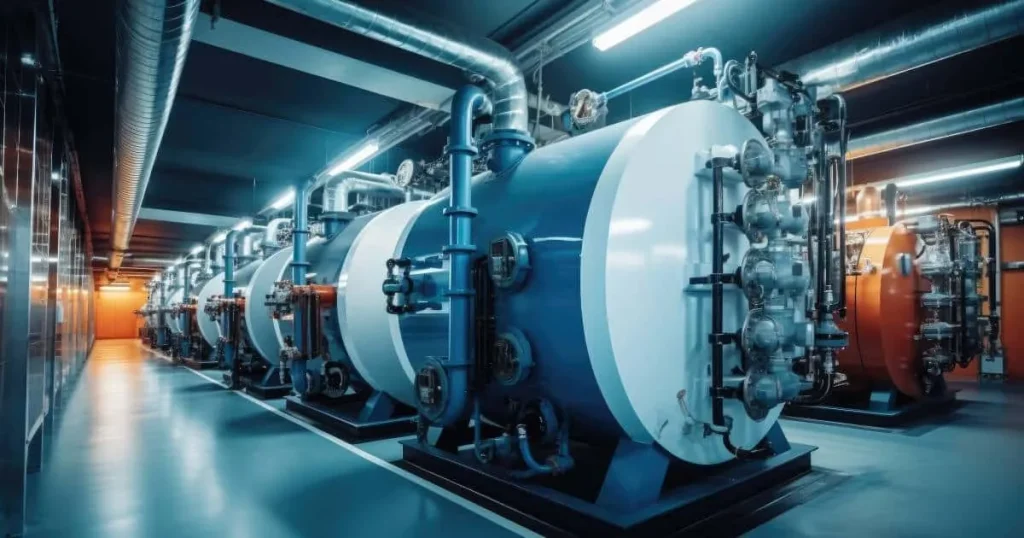Industrial boiler systems play a critical role in various industries, from power generation to manufacturing. To ensure optimal performance, longevity, and efficiency, industrial boiler coating has become a vital solution. This article explores the significance, benefits, and types of coatings used in industrial boilers while addressing their impact on operational efficiency.
What Is Industrial Boiler Coating?
Industrial boiler coating refers to the application of specialized protective layers on the internal and external surfaces of boilers. These coatings are engineered to withstand extreme temperatures, resist corrosion, and reduce wear caused by harsh operating conditions. The primary goal of boiler coatings is to improve the performance and extend the lifespan of the equipment.
Why Is Industrial Boiler Coating Necessary?
Industrial boilers are subjected to high-pressure steam, fluctuating temperatures, and exposure to corrosive substances such as chemicals and water vapor. Over time, these factors can cause damage, leading to reduced efficiency, costly maintenance, and even equipment failure. Coatings act as a protective barrier, offering several advantages:
- Corrosion Resistance: Prevents rust and degradation caused by chemical exposure.
- Thermal Efficiency: Improves heat transfer while reducing energy losses.
- Wear and Tear Protection: Minimizes abrasion and mechanical wear.
- Extended Lifespan: Reduces the need for frequent repairs or replacement.
Types of Industrial Boiler Coatings
Different coatings are designed to address specific challenges in industrial boiler systems. Here are the most common types:
1. High-Temperature Coatings
Designed to withstand extreme heat, these coatings are ideal for boilers operating at elevated temperatures. They maintain their structural integrity and prevent thermal degradation, ensuring efficient heat transfer.
2. Corrosion-Resistant Coatings
These coatings use materials such as epoxy or ceramic to protect against rust and chemical attacks, especially in environments with high moisture or acidic compounds.
3. Abrasion-Resistant Coatings
Ideal for boilers in industries where solid particles or debris are present, these coatings guard against mechanical damage caused by friction or impact.
4. Ceramic Coatings
Known for their exceptional thermal insulation properties, ceramic coatings reduce energy loss while withstanding both high temperatures and corrosion.
5. Polymer-Based Coatings
These versatile coatings offer a combination of flexibility and durability, making them suitable for various industrial applications.
The Coating Process: Key Steps
Applying industrial boiler coatings involves a systematic process to ensure maximum adhesion and performance:
- Surface Preparation
The boiler’s surface is cleaned thoroughly to remove rust, scale, and debris. Techniques like sandblasting or chemical cleaning are commonly used. - Application
The coating material is applied using methods such as spraying, brushing, or dipping, depending on the type of coating and boiler design. - Curing
After application, the coating undergoes a curing process to ensure it hardens properly and adheres to the boiler surface. - Inspection
Quality checks are conducted to confirm uniformity and effectiveness of the coating before the boiler is operational.
Benefits of Industrial Boiler Coating
Investing in high-quality boiler coating offers long-term benefits that outweigh initial costs. These include:
- Reduced Maintenance Costs: Coatings minimize damage, leading to fewer repairs and lower maintenance expenses.
- Improved Energy Efficiency: Better insulation and heat retention result in reduced energy consumption.
- Enhanced Safety: Coatings prevent leaks and failures, reducing risks to workers and equipment.
- Environmental Sustainability: By improving efficiency, coatings contribute to lower emissions and resource usage.
Industries That Benefit from Industrial Boiler Coating
While almost every industrial sector can benefit from boiler coatings, they are particularly advantageous in:
- Power Plants: To ensure uninterrupted energy production and reduce downtime.
- Chemical Processing Plants: To combat corrosive substances and high-pressure conditions.
- Food and Beverage Industry: To maintain hygiene and efficiency in steam generation.
- Textile Manufacturing: To ensure reliable heat supply during operations.
Choosing the Right Industrial Boiler Coating
Selecting the appropriate coating depends on the operating conditions and specific challenges of the boiler system. Factors to consider include:
- Operating Temperature Range
- Chemical Exposure Levels
- Physical Wear and Tear Risks
- Compliance with Industry Standards
Consulting with a professional coating specialist is essential to identify the best solution for your boiler’s needs.
Conclusion
Industrial boiler coating is not just a protective measure but a strategic investment in the efficiency and durability of your equipment. By safeguarding against corrosion, wear, and thermal inefficiencies, coatings ensure that boilers perform at their peak for extended periods. For industries seeking cost-effective and sustainable solutions, incorporating high-quality coatings into their maintenance strategies is a game-changer.






